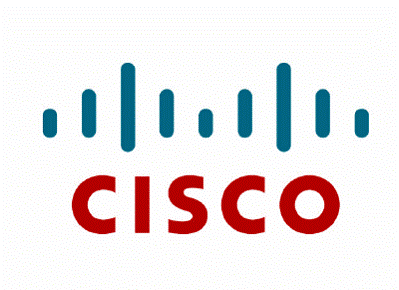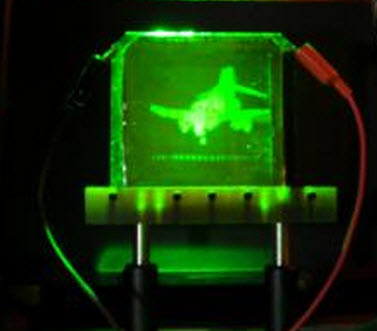
1. Computer Chip in a Pill May Be Approved in 2012 – The chip is activated by stomach acid and transmits information to a patch attached to the patient’s skin, which then sends it on to a doctor via the Internet or a smartphone. The first application of the chip-in-a-pill — or as it is officially known, the Ingestible Event Marker (IEM) — is expected to be for transplant patients, to help avoid organ rejection. Source PHYSORG.com 
2. Home Security Robots Hit the Market – a modified version of the Rovio from WowWee, has a camera, microphone and speakers atop a three-wheeled platform. From anywhere with a WiFi Net connection, you can send your robot zipping around the house, returning a video signal along the way. As creepy as it sounds, you could even talk to the guy and say, “Get out of there. There’s nothing valuable. I’m calling the police. “For all its power and ability, the Rovio is usually found in a store’s toy section for about $170. Other robots from toy makers, like Meccano, are there as well. Outfitting a house with a fleet of robot guards is no longer just for the very wealthy. Source: MercuryNews.com
Author Archives: The Weekly Commentary
Personal Notes
 vs.
vs. 
My wife Jo Anne volunteered to work for me this weekend. She agreed to drive around the Lehigh Valley, visit the shopping malls, walk through various sections of the mall, stop in several of her favorite stores, and observe shoppers buying habits. (This was a very expensive assignment!).
Her report: “You can’t tell me there is a recession out there. The malls were jammed. I had trouble finding a parking spot. The stores were packed. The checkout lines-too long. And, the selection (inventory) was limited.”
There we have it.
The Markets This Week

STOCKS HEADED SOUTH last week, ending a five-week winning streak and posting their biggest weekly drop in three months. You can blame fears of a slowdown in China, which swept through the market Friday, but it was a lackluster profit outlook from tech titan Cisco Systems (ticker: CSCO) that really got things moving in the wrong direction, for both the major indexes and the company’s shares.
Technology and financial stocks took the brunt of the selling, which saw the Dow Jones Industrial Average close down 2.2%, to 11,192.58, for the five trading sessions. The Nasdaq Composite gave up 2.36%, to 2518.21.
Cisco, a maker of networking gear, stunned Wall Street after Wednesday’s close by forecasting lower revenue growth in its current quarter and for all of fiscal 2011, ending next July. The company cited budget cutbacks by governments in the U.S. and abroad, as its shares fell 17%, to 20.15 on the week. Another tech bellwether, Intel (INTC), announced a 15% dividend increase Friday, calling 2010 its “best year ever,” but the news did little to reverse negative market sentiment. Intel ended the session up 1.5%, at 21.53.
Louise Yamada, a technical analyst based in New York, said technology remains one of her favorite sectors, but the names that have advanced “are due for a well-deserved rest.”
CHINA’S SHANGHAI COMPOSITE INDEX had its worst week since early July, falling 4.6% on fears that the Chinese government could further tighten monetary policy. Consumer prices in China rose a higher-than-expected 4.4% in October.
Any slowdown in China’s growth, and that of other emerging markets, would curtail demand for raw materials. Perhaps in anticipation, oil fell more than 3% Friday, and the December contract knocked off $1.97 a barrel, to near $85, on the week, securing its fourth decline in five weeks.
Yet, there’s talk on the Street that the price could spike to $100 per barrel in the next 12 months. JPMorgan raised its oil-price estimate last week, and now expects crude to average $90 a barrel in 2011, about $5 above the consensus.
Natural-gas prices fell 3.5% for the week, closing at $3.79 per million British thermal units. Weak gas prices didn’t seem to help Chevron (CVX), however, which agreed to acquire Atlas Energy, one of the early explorers in Pennsylvania’s gas-rich Marcellus shale. The deal, for $3.2 billion in cash and $1 billion in debt, was announced after Pennsylvania Republicans scored electoral victories, which eased worries about regulatory restrictions on fracking, the messy process of forcing gas out of underground shale rock (Source: Barrons Online).
The Numbers
In an unusual week, U.S. Stocks, Foreign Stocks, and Bonds all declined – one week after they all advanced. During the last 12 months, U.S. STOCKS outperformed BONDS. 
The Markets – Enjoy the Good Times While They Last

The Federal Reserve Bank appears to be pushing the stock and bond markets higher. More probably than not, this is a good time for investing. Investors should return to their normal asset allocation by investing their excess cash reserves and monies that will not be expended within 5 years.
However, there is some danger that lies ahead – probably one year to several years from now – when the FED unwinds its actions of the last two years. For that reason, I recommend you read the interview from Barrons Online which does a good job of outlining the present day opportunities and the risks down the road. Click here for the Barrons Online interview.
The Economy

The economy continues to give us mixed signals but most are positive. Here is a succinct list of what happened last week:
Positives
1) Oct payrolls surprise big to the upside
2) Fed lights another fire under asset prices
3) Emerging markets continue to rally as investors seek non $ assets
4) Oct auto sales rise to best since Sept ’08 ex clunkers
5) ISM services and mfr’g indices both above forecasts
6) Both Australia and India’s central bank raise rates to cool inflation pressures
7) Fed to allow healthy banks pay dividends.
Negatives
1) Commodity inflation as measured by CRB index rises to 2 year high
2) Ireland, Portugal and Greece financial concerns continue to grow
3) German Sept factory orders fall sharply
4) Sept Pending Home Sales unexpectedly fall.
Fact Of The Week

The interest rate set by the central bank of Australia, a country who is a major supplier to China, recently increased to 4.75%. The central bank of the U.S. (the Federal Reserve) is holding the equivalent interest rate in the U.S. at .25%.
Did You Know?

Valley National provides DAILY MONEY MANAGER services? A DAILY MONEY MANAGER is a professional who provides a wide range of personal assistance to clients who want help managing their day-to-day monetary affairs. A DAILY MONEY MANAGER often organizes and tracks financial and medical insurance papers, pay bills and maintain bank accounts. A DAILY MONEY MANAGER can save time and hassle, negotiate on behalf of a client, or help prepare for a major change in a client’s life, like a move. Who needs the services of a DAILY MONEY MANAGER?
• Spouses dealing with a death or divorce.
• Adult children with elderly parents living a distance from them.
• Professionals pressed for time or travelling for long periods.
• Seniors who suffer from poor eye sight.
• Anyone who needs assistance in managing their own personal financial affairs.
For more information on the Valley National Daily Money Manager services, please contact Betty Adam at 610-868-9000 x118 or badam@valleynationalgroup.com
Motivational Quote of the Week

Technology Breakthroughts That Could Make A Difference

1. Three Dimensional Moving Holograms Breakthrough Announced – A team led by University of Arizona (UA) optical sciences professor Nasser Peyghambarian has developed a new type of “holographic telepresence” that allows remote projection of a three-dimensional, moving image without the need for special eyewear such as 3D glasses or other auxiliary devices. The technology is likely to take applications ranging from telemedicine, advertising, updatable 3D maps and entertainment to a new level. Source: KurzweilAI.net

2. A Cure for the Common Cold? – Landmark research led by Dr. Leo James from the Medical Research Council Laboratory of Molecular Biology (LM![]() in Cambridge UK has discovered that antibodies can fight viruses from within infected cells. This finding transforms the previous scientific understanding of our immunity to viral diseases like the common cold and gastroenteritis. It also gives scientists a different set of rules that pave the way to the next generation of antiviral drugs. Source:KurzweilAI.net
in Cambridge UK has discovered that antibodies can fight viruses from within infected cells. This finding transforms the previous scientific understanding of our immunity to viral diseases like the common cold and gastroenteritis. It also gives scientists a different set of rules that pave the way to the next generation of antiviral drugs. Source:KurzweilAI.net
